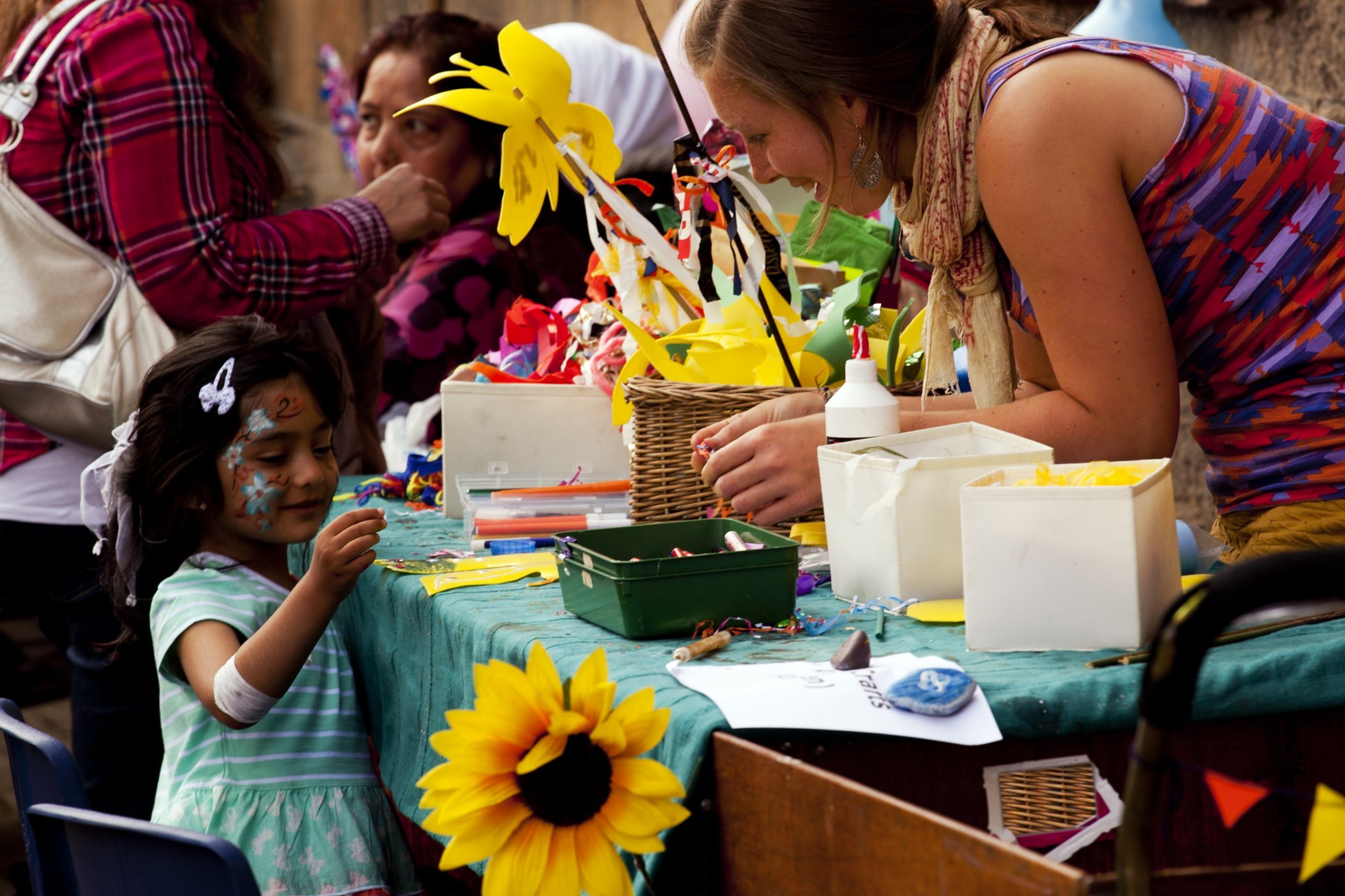
Photo: Iman Tajik
A warm welcome
Suzi Simpson tells how this summer’s Refugee Week Scotland celebrated the successful integration of refugees with music, dance, films and feasts.
At Scottish Refugee Council, a large part of my role involves programming and delivering Refugee Week Scotland, a festival of over 130 arts, cultural and community events that take place across Scotland every June. The festival first began in 2000 with a community carnival event in Glasgow’s George Square. Over the last 14 years it has grown bigger and better every year with around 160 cultural partners and venues now participating in celebrating the contributions refugees make to life in Scotland and the welcome offered to refugees by Scotland’s communities. My role involves co-ordinating these partnerships and activities, as well as developing new ones, and pulling them together into a cohesive programme.
We are living in a climate of fear where negativity towards migrants is becoming increasingly prevalent
Although my brief at first seemed rather particular – developing projects with refugees in Scotland who make up only 0.5% of the population – I soon realised that there were endless stories to tell. There are so many unheard voices in Scotland’s refugee community, so many individuals with inspiring stories of resilience and determination just waiting to be told. Not only that, but we are living in a climate of fear where negativity towards migrants is becoming increasingly prevalent. Our message at Scottish Refugee Council, that people fleeing persecution and seeking sanctuary in Scotland are welcome here, has become more urgent than ever to convey.
Refugee Week Scotland and our year-round arts and cultural development work contribute significantly to the successful integration of refugees in Scotland’s communities and in debunking some of the myths perpetuated by the media. Our arts projects help to facilitate understanding between people from different cultures and address some of the barriers to integration that refugees face, such as isolation, lack of social connections, language difficulties and leading a transitory and unstable existence as a result of the asylum system.
The idea for A View from Here, our recent arts and heritage project, came from a desire to tell the story of refugees, migrants and local Scots living in some of Glasgow’s high-rise flats, many of which are due for demolition. We wanted to explore what the future might hold for these areas through the eyes of the people who live there – and refugees and asylum seekers are a big part of that story. It was important to ensure a balance of participation from refugees, people seeking asylum, migrants and local Scots, to encourage understanding and integration and reflect as wide a picture as possible of the areas. Through a series of creative workshops, participants were empowered to tell their own stories and learn about other people’s experiences. The project culminated in an exhibition of photos, objects and visual art, a documentary and performances as part of Refugee Week Scotland 2014.
A View from Here is just one example of our approach to programming Refugee Week Scotland. In the past few years it has gained festival status and become an important fixture on the Scottish cultural calendar. Each year we develop a different theme and this year’s theme ‘Welcome’ conveyed a clear and positive message that refugees are welcome in Scotland and also mirrored the welcome offered by the country to international visitors to Glasgow’s Commonwealth Games. We supported and enabled 36 refugee community groups and integration networks to join the celebration, sharing the culture of ‘New Scots’ from the Ivory Coast, Syria, Kurdistan, Afghanistan, Cameroon, South Africa, Nigeria and lots of places in between, by providing small grants and capacity-building workshops. These events take the form of music and dance nights, sports days, films and feasts, with authentic world cuisine you can’t find in most Scottish restaurants. At every event there was good conversation and always the warmest of welcomes.
During the week we launched our Welcome Tent on the streets of Glasgow as a response to the Home Office’s ‘Go Home’ campaign. We wanted to increase people’s understanding of why refugees come here to seek sanctuary instead of vilifying those most in need. We did so with a bumper programme of arts events, workshops and discussion.
Another highlight was a gig featuring multi-award-winners Scottish hip hop trio Young Fathers. The concert, held on World Refugee Day, was a show of solidarity with refugees not just in Scotland but across the world. Ticket sales raised funds for the Scottish Refugee Council and the work of the British Red Cross to provide vital services to refugees.
Refugee Week Scotland is unique and well-loved across Scotland. It is such an important festival because it shines a light on those individuals, community groups and networks that welcome new people into our communities and help others to see the people behind the labels. That to me is what makes this festival so unique.
Suzi Simpson is Arts and Cultural Development Officer at Scottish Refugee Council and Producer of Refugee Week Scotland.
www.scottishrefugeecouncil.org.uk
Join the Discussion
You must be logged in to post a comment.